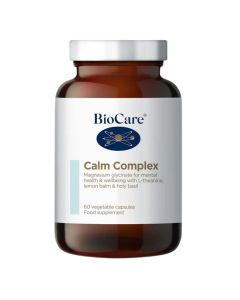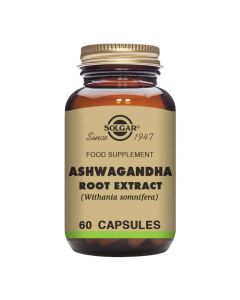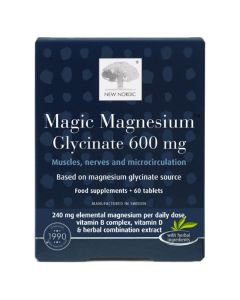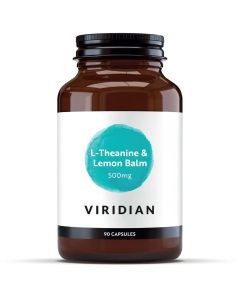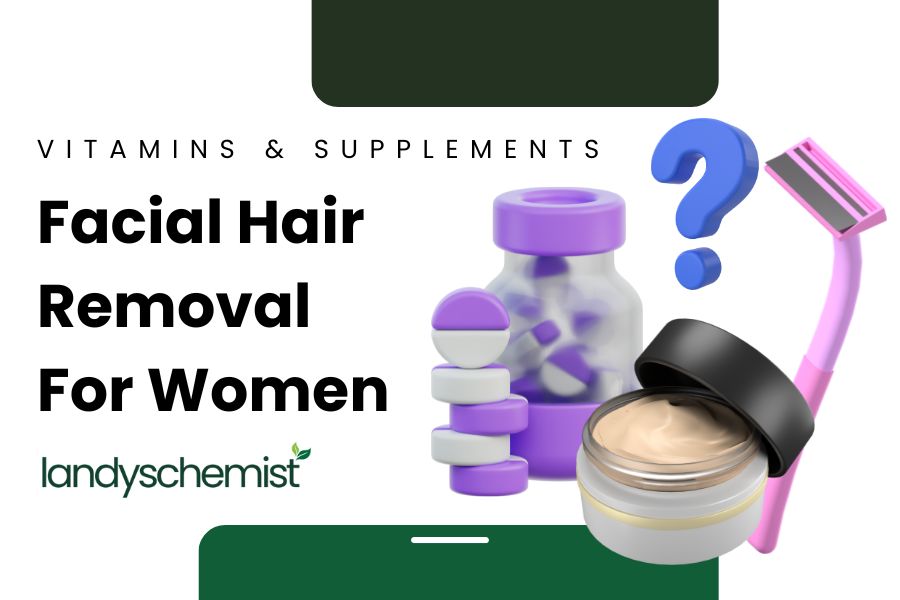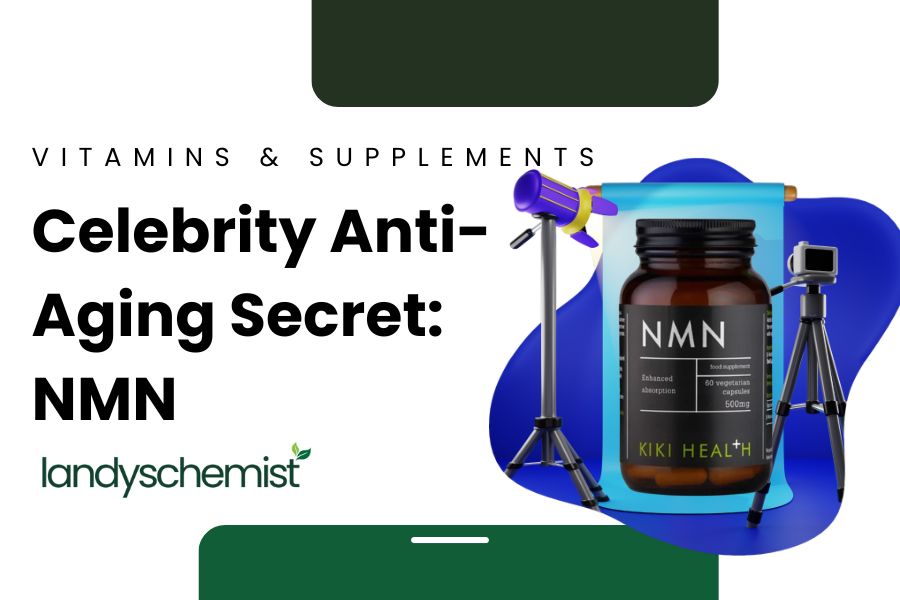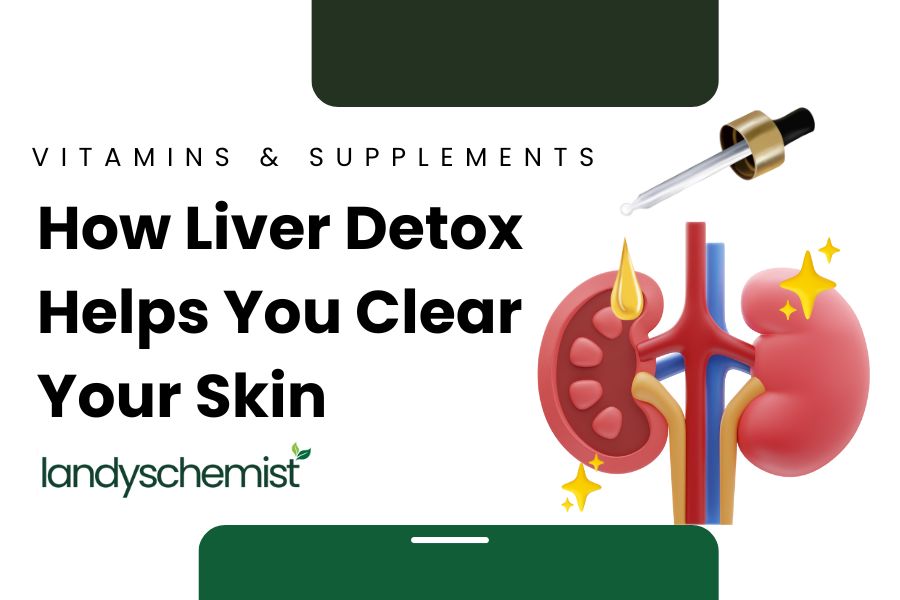
Best Supplements and Natural Ways to Lower Cortisol
What is Cortisol?
Cortisol is the body’s primary stress hormone. It is released by the adrenal glands in response to stress and low blood sugar levels[1]. Under healthy circumstances, it helps regulate metabolism, reduce inflammation, and assist with memory formulation. However, when cortisol levels remain consistently high (which is referred to as Cushing’s syndrome[2]), it can lead to various health problems, including weight gain, high blood pressure, and a weakened immune system[3].
Understanding the Impact of Cortisol on Women’s Health.
How High Cortisol Levels Affect Women Differently
High cortisol levels can take a toll on women’s health, often showing up in ways that are easy to overlook or misinterpret. For instance, many may experience weight gain around the abdomen, known as "cortisol belly," where stress leads to increased appetite and fat storage[4]. Other signs include a flushed, rounded face often referred to as "moon face," which results from fat redistribution and water retention[5]. Additionally, high cortisol can contribute to high blood pressure as blood vessels constrict and retain sodium[6]. Recognizing these symptoms early can help you take action to manage cortisol levels and prevent more serious health issues down the line.
Is What We Hear About Cortisol on Social Media True?
With all the buzz about cortisol on social media, it’s important to separate fact from fiction. While it’s true that elevated cortisol can have negative effects on health, many posts can exaggerate or oversimplify the issue. For example, not every stress response leads to significant health problems, and cortisol plays a crucial role in essential bodily functions, therefore aiming for its complete elimination is not only unnecessary, but also potentially harmful. However, if you find yourself experiencing symptoms like weight gain, mood swings, or high blood pressure, it’s worth taking preventative measures and consulting with a healthcare professional.
Best Supplements and Herbs for Cortisol Reduction
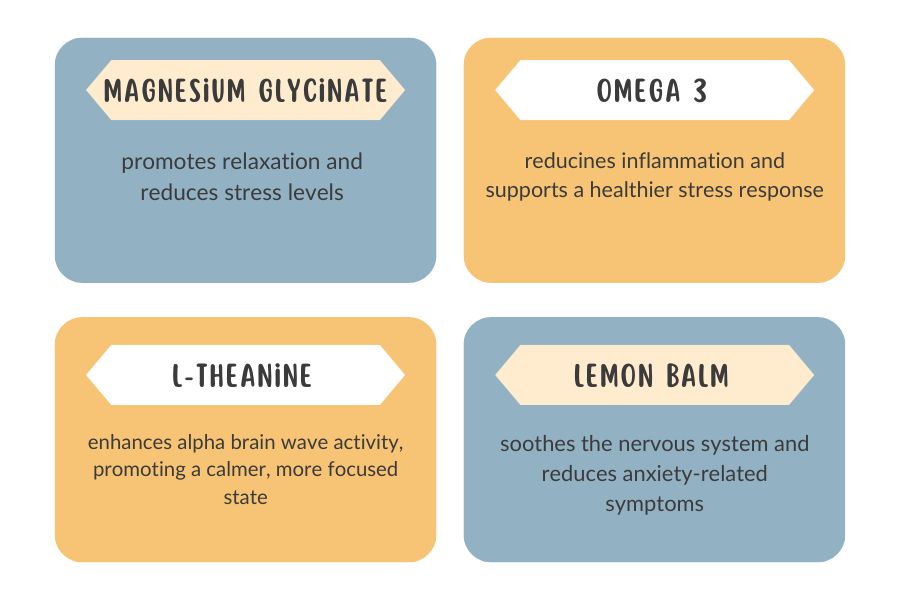
There are a wide range of supplements that can help manage cortisol levels. Here are some top picks:
BioCare Calm Complex Capsules are a unique blend of adaptogens, including lemon balm, L-theanine, holy basil, and magnesium glycinate, designed to support mental health, relaxation, and restful sleep.
Key benefits:
- Reduces Physical Stress Symptoms: BioCare Calm Complex helps relieve physical symptoms of stress, such as fatigue and muscle tension, by regulating cortisol levels.
- Supports Stress Management: By reducing feelings of anxiety, these capsules enhance emotional balance and assist in managing cortisol concentrations, which is vital for hormone stability[7]
- Enhances Mental Clarity: By reducing stress-induced brain fog and emotional instability, it supports clearer thinking and better focus.
Solaray Omega-3 Softgels contain essential fatty acids that improve both mental and physical resilience, making them effective in reducing cortisol levels and supporting overall well-being.
Key benefits:
- Lowers Nervous System-Induced Inflammation: Omega-3s, particularly EPA, have anti-inflammatory properties that can help counteract the inflammation caused by prolonged high cortisol levels, promoting a calmer body response to stress[8].
- Supports Mental Health and Emotional Stability: Omega-3 fatty acids like DHA support brain function and may help reduce cortisol-related anxiety, depression, and mood swings, leading to better emotional balance, especially during hormonal shifts, such as menopause[9]
- Balances Hormonal Responses: Regular intake of these softgels helps regulate the body's stress response, preventing excessive cortisol production and promoting a more stable hormonal balance[10].
Solgar Ashwagandha Root Extract
Ashwagandha is a powerful adapogen that has been used for thousands of years in Ayurvedic, Indian, and Unani medicine to help manage cortisol levels and promote overall well-being.
Key benefits:
- Supports Adaptation to Stress: By aiding the body's ability to adapt to stressors, ashwagandha helps regulate cortisol levels, making it an effective natural remedy for reducing the impact of stress on health.
- Combines Tradition and Science: Ashwagandha’s benefits are backed by both traditional practices and modern research, providing a potent herbal extract that retains the essential qualities found in nature while effectively supporting hormone balance[11].
- Rich in Active Compounds: With its active compounds, ashwagandha nourishes the body, helping to reduce cortisol levels and improve resilience to everyday challenges.
New Nordic Magic Magnesium Glycinate
New Nordic Magic Magnesium Glycinate Tablets contain an essential minerals and nutrients to support healthy energy levels through the day, therefore helping to maintain balanced cortisol levels and reduce stress even with the busiest schedules.
Key Benefits:
- Encourages Relaxation: These magnesium glycinate tablets help promote a sense of calm, which can lead to a natural reduction in cortisol concentration.
- Enhances Sleep Quality: By improving the quality of your sleep, magnesium glycinate helps lower cortisol levels, as restful sleep is essential for preserving stable hormone levels.
- Maintains Biochemical Balance: Magnesium glycinate supports the body's natural hormonal regulation, helping to keep cortisol rates in check and fostering overall well-being[12].
Viridian L-Theanine and Lemon Balm Capsules
Viridian L-Theanine and Lemon Balm Veg Caps 30 offer a powerful combination specifically designed to help lower cortisol levels and promote overall relaxation.
Key benefits:
- Supports Stress Relief and Cognitive Function: The L-theanine, an amino acid derived from green tea leaves, works together with lemon balm extract to effectively reduce cortisol, helping to ease stress and maintain cognitive clarity[13].
- Rapid Absorption: The L-theanine in this formulation is in its free form, which allows for faster absorption into the body, providing quicker relief from elevated cortisol levels and promoting a relaxation.
Lifestyle Changes to Support Cortisol Management
Making specific lifestyle changes can significantly impact how your body responds to stress. Below, we explore the importance of sleep and offer tips for better rest, as well as effective exercise routines that can help reduce stress and support cortisol management.
Importance of Sleep and Tips for Better Rest
Getting enough quality sleep is crucial for managing cortisol levels and overall health. To improve your rest, establish a consistent sleep schedule, create a calming bedtime routine, and limit exposure to screens before bed. Getting 7-9 hours of quality sleep each night can significantly reduce signs of Cushing’s syndrome[14]. Additionally, ensure your sleep environment is comfortable and dark, and consider relaxation techniques like deep breathing or gentle stretches before to help you unwind[15].
Exercise Routines That Help Reduce Stress
Regular physical activity is a powerful tool for managing cortisol levels and reducing stress. Engaging in low-impact exercises, such as yoga or pilates, can effectively lower cortisol while boosting endorphins, the body's natural mood lifters[16]. It can also promote relaxation and mindfulness, further supporting stress management. Aim for at least 30 minutes of moderate exercise most days of the week to reap these benefits and improve your overall well-being.

Professional Approaches to Support Cortisol Management
When to See a Healthcare Provider
If you're experiencing persistent symptoms associated with high cortisol levels, such as significant weight gain, mood swings, or high blood pressure, it may be time to consult a healthcare provider. They can perform tests to evaluate your cortisol levels and determine if there's an underlying condition, such as adrenal dysfunction[17]. Additionally, a healthcare professional can help you develop a tailored plan that includes lifestyle changes, supplements, or medications to effectively manage cortisol and improve your overall health. Don't hesitate to seek guidance if you're struggling to cope with stress or if your symptoms interfere with daily life.
FAQ
How quickly can supplements start to reduce cortisol levels?
The effects can vary based on individual health conditions and the specific supplement, but generally, you might start to see changes within a few weeks.
Are these supplements safe to take with other medications?
While supplements are generally safe, they can interact with other medications. It’s always best to consult with a healthcare provider before starting any new supplement regimen.
Can children take cortisol-reducing supplements?
Yes, products like Nature's Plus Animal Parade are designed for children. However, it is advisable to consult with a paediatrician before starting any supplements for children.
Are there any side effects of taking cortisol-reducing supplements?
Most people do not experience severe side effects. Minor side effects may include nausea and digestive discomfort. Always adhere to the recommended dosages to minimize risks.
[1] https://www.mayoclinic.org/healthy-lifestyle/stress-management/in-depth/stress/art-20046037
[2] https://www.mayoclinic.org/diseases-conditions/cushing-syndrome/symptoms-causes/syc-20351310.
[3] https://my.clevelandclinic.org/health/articles/22187-cortisol
[4] https://www.health.com/cortisol-belly-8606192
[5] https://medlineplus.gov/ency/article/000348.htm
[6] https://my.clevelandclinic.org/health/articles/22187-cortisol
[7] https://www.rupahealth.com/post/magnesium-glycinate-vs-citrate-which-should-you-take
[8] https://www.medicalnewstoday.com/articles/322652
[9] https://www.ncbi.nlm.nih.gov/pmc/articles/PMC3195360/
[10] https://www.ncbi.nlm.nih.gov/pmc/articles/PMC8510994/
[11] https://ods.od.nih.gov/factsheets/Ashwagandha-HealthProfessional/
[12] https://www.ncbi.nlm.nih.gov/books/NBK507250
[13] https://www.ncbi.nlm.nih.gov/pmc/articles/PMC6836118/
[14] https://www.ncbi.nlm.nih.gov/pmc/articles/PMC8429905/
[15] https://www.stress.org/news/stress-weight-gain-and-mood-swings-is-cortisol-causing-these/
[16] https://www.ncbi.nlm.nih.gov/pmc/articles/PMC10819297/
[17] https://healthmatch.io/pcos/adrenal-pcos

